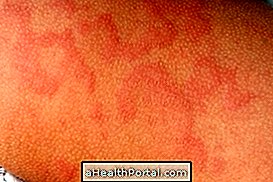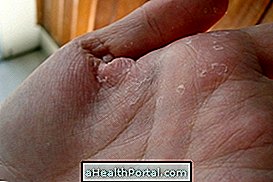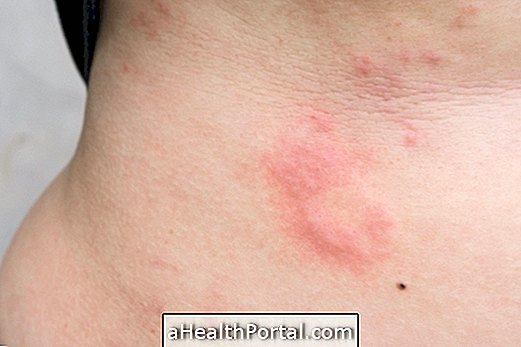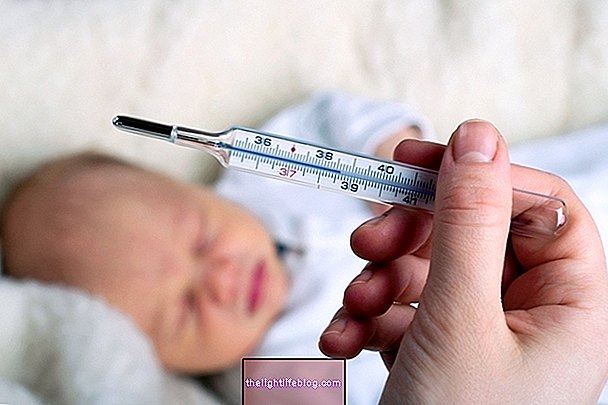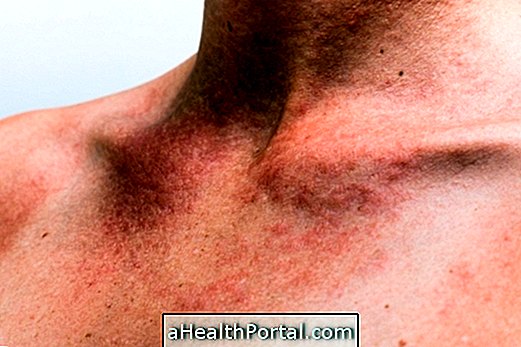The allergy test is a type of diagnostic test used to know whether or not the person has any allergies such as skin allergy, allergy to deodorant, food, medicine, or even respiratory.
Generally, the allergy test is done in the allergist's or dermatologist's office, and it is recommended when the person has itchy, swollen or reddened skin. These tests can also be done through blood tests, which determine which food or environment substances are most at risk of causing allergy.
The allergy test is usually done in a doctor's office, such as Dermatologist or Allergologist, and can vary between 200 and 300 reais, depending on the type of allergy you are trying to diagnose.

How is done
To test for allergy, you should consult an allergist or dermatologist who, depending on the type of allergy, will recommend one of the following skin allergy tests:
- Forearm Allergy Test: A few drops of the substance thought to cause allergy are allowed to drip on the patient's forearm, or a few bites are done with a needle with the substance, and 20 minutes are patient makes reaction;
- Back allergy test: Also known as a contact allergy test, it consists of attaching an adhesive tape to the patient's back with a small amount of the substance thought to cause allergy to the patient, then wait up to 48 hours and observe some reaction appears on the skin.
Skin allergy tests can be done to detect an allergy in anyone, including infants, and the positive reaction is the formation of a red blister, such as a mosquito bite, which leads to swelling and itching on the spot.


In addition to these tests, the patient can have a blood test to see if there are substances in the blood that indicate if the individual has any type of allergy.
In the case of a food allergy, such as allergy to milk, gluten or shrimp, for example, the doctor may also recommend performing an oral challenge test, which consists of ingesting a small amount of the food causing allergy and checking the reaction. Understand which foods cause the most allergy.
How to prepare for the test
The preparation for the allergy test should include:
- Eliminate the use of antihistamines, such as Hydroxyzine or Clemastine, for example two weeks before performing any allergy test, as it may interfere with the results, preventing the reaction to the substance to which you are allergic;
- Avoid applying skin creams, as it can lead to a wrong result when performing skin allergy testing.
In addition to these guidelines, the patient should comply with all the specific indications that the doctor has indicated, so that the allergy test correctly informs the cause of the allergy.
See how treatment can be done that can definitely cure some allergies.

